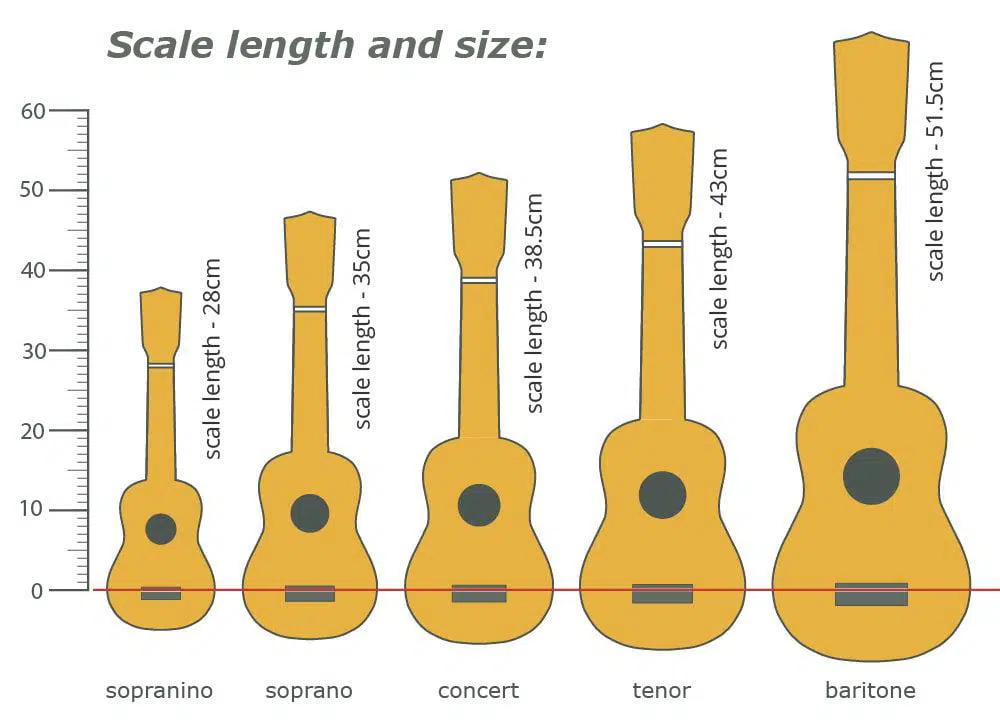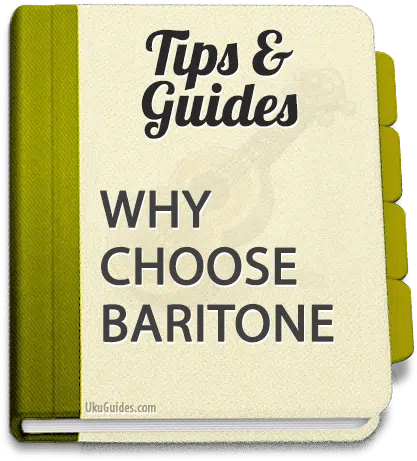There are four ukulele sizes, soprano, concert, tenor and baritone. Why would you choose the biggest one, the baritone ukulele? When does getting the big one make the most sense?
Why the baritone ukulele is known as the black sheep
If you’re a beginner, you should know that any of the four ukulele sizes will make a great starter instrument. As you will find out in the ukulele buying guide, the soprano, concert and tenor sizes are the most common ones. All three instruments have the same tuning and chords. Most of the instructional materials you’ll find cater to owners of any of these three sizes.
Because the baritone ukulele is so different from the other three, it’s often described as the black sheep of the ukulele family. That’s a shame really, because we think it’s really special. If you haven’t got a baritone ukulele in your collection yet, or if you’re unsure whether the baritone would be a good choice for you, read on. Find out the top three reasons why a bari uke should be your next instrument purchase.

1. A baritone ukulele sounds different
What makes the baritone ukulele different from the other ukulele sizes is what makes it so endearing. Are you interested in playing the ukulele but not much of a fan of the too-bright, too-sweet tones? In that case the baritone size would be a good match for you. Why is that? Because it produces a lower tone: a warmer, darker and richer sound as a result of its construction and tuning. A typical ukulele is tuned as GCEA whereas the baritone is tuned as DGBE.
The deep tone the bari uke produces makes this instrument a favourite among musicians who play blues or jazz. The best baritone ukuleles also respond well to fingerpicking styles, giving musicians more range and flexibility.
So, get a baritone if you want to expand your tonal range and create a more mellow, deeper sound.

2. It is easy to play
The baritone ukulele is easy to play, which makes it a great choice for beginners. The other ukulele sizes are also beginner-friendly but could feel uncomfortable to play if you have long or thick fingers.
Smaller ukes have a tighter fret and string spacing, requiring players to really squeeze their fingers into frets when forming chords. This isn’t a problem for kids and petite adults but for players with bigger hands, it’s common to accidentally place your fingers on the wrong strings.
The baritone ukulele offers a wider fret and string spacing, which means your fingers will have more playing room. If you find smaller ukes to be… well… too small for you, consider getting a baritone instead.
3. It is similar to a guitar
If you play the guitar, you’ll be familiar with the tuning of the baritone ukulele: DGBE. Yep, it’s the same as the top or highest-pitched strings on the guitar. Want to play the uke? Go ahead and get a baritone, and play the same chords using only those four strings. The chords are basically the same.
This is why the bari uke is popular among guitar players. They can play a new instrument without having to learn anything drastically new!
Likewise, if you already play a baritone ukulele, you’ll find it easier to transition to guitar because some of the chords will already be familiar to you. The size of the baritone – about 30 inches long – is also closest to that of a travel-sized acoustic guitar.
As you can see, a baritone ukulele is a fantastic instrument to pick up whether you’re a beginner or an experienced musician. Go ahead and get one!
Need more input?
I hope this guide has helped to explain why you might want to get a baritone ukulele. If you want to give the baritone size a shot, but don’t want to break the bank, I can highly recommend the Makala MK-B baritone ukulele in mahogany from Kala. I’m a big fan of Kala and while their premium ukulele’s are top notch, they are also well know for their very good entry tier ukulele’s.
This guide was made possible thanks to the help of KnowYourInstrument. Feel free to contact me whenever you need more information about buying the perfect baritone ukulele for you!
Also interested in things to know before buying a ukulele?
